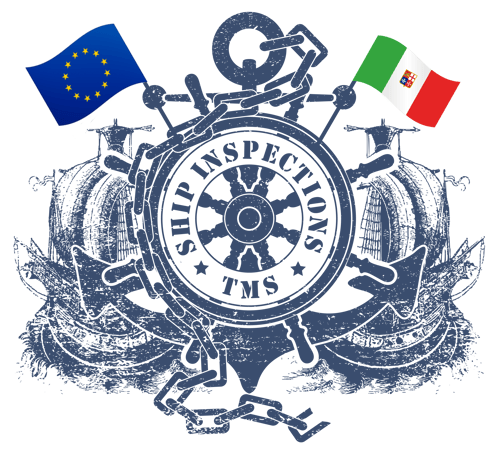Ship Audits
As Marine Auditors, we offer independent assessments of the owned fleet. Our skilled inspectors verify the vessel condition, analyze the operational performance, and compliance management against the industry’s best practices and standards. We also analyze the competencies of the on-board staff, previous history as well as maintenance statistics for efficient ship operations to increase the profit earning during voyages
Internal & External SMS & ISPS Audit
Internal SMS & ISPS Audit The objective of a company SMS & ISPS audit is to seek information about the Safety Management System and to determine (by objective evidence) the degree of compliance with the applicable rules, regulation and standards (ISM, ISO etc), and the documented company procedures. The audit should identify strengths and weaknesses, verify that procedures are controlled properly and that they are being followed. The system audit should also establish corrective action and improvement plans and ensure that personnel understand the requirements and that management commitment is evident. Internal audits are carried out on board and in the office with intervals not exceeding 12 months. A yearly Audit Plan shows the planning of internal and external audits.
Maritime Labour Convention verification Audits (MLC 2006)
Our ship consultants are able to undertake independent Maritime Labour Convention verification audits to determine the suitability and effectiveness of a vessel’s MLC system The Maritime Labour Convention (MLC) was established in 2006 as an International Labour Organization convention and the fourth arm of international maritime law, alongside SOLAS, STCW and MARPOL. The MLC Convention covers the following areas: Minimum requirements for seafarers to work on a ship Conditions of employment Accommodation, recreational facilities, food and catering Health protection, medical care, welfare and social security protection Compliance and enforcement We generate concise and accurate reports identifying non-conformities, observations and noteworthy remarks. Our aim is to assist our clients to remove non-conformities and provide pragmatic solutions to compliance issues
Port State Control Verification Audit
Our maritime management consultants can perform a Port State Control Verification Audit aboard ships and yachts to help minimise the risk that a Port State Control (PSC) inspection could result in any deficiencies or even detentions. Port State Control (PSC) is an internationally agreed regime for the inspection of foreign vessels in other national ports by PSC inspectors. These inspectors are tasked with verifying compliance of the vessel with the requirements of key international conventions and associated codes (e.g. ISM, ISPS, SOLAS, MARPOL, STCW, MLC). A PSC inspection can include the following actions: Ensuring that the vessel is manned and operated in compliance with applicable international law Verifying the competency of the ship’s master and officers Checking the condition of a vessel and its equipment. Our specialists will support you in the preparation for a PSC inspection, follow up on any corrective or preventive actions, and compose a report with recommended improvement and lessons learned. We can also attend onboard your detained vessel to: Assist with training Effectively manage deficiency rectification Liaise with Port State officials
Navigational Assessments and Audits
The biggest risk facing a ship owner is a major navigational incident in spite of the fact that the techniques for safe navigation are well known. When these techniques are professionally executed, navigational risks are reduced. Navigational audits are a requirement of TMSA and becoming more and more common in other trades e.g. bulk carriers. This course focuses on the challenge of safe navigation today. It covers the technical background regarding navigation and gives special emphasis to current developments and charterers’ requirements. Participants will be made aware of gaps in their knowledge that could lead to unsafe procedures and understand the huge importance of the human element in the navigational process. Risk Management and auditing are used as tools to monitor and/or improve individual skills as well as those of the whole bridge team. Improvements to existing Safety Management Systems can also be identified within such an audit.
